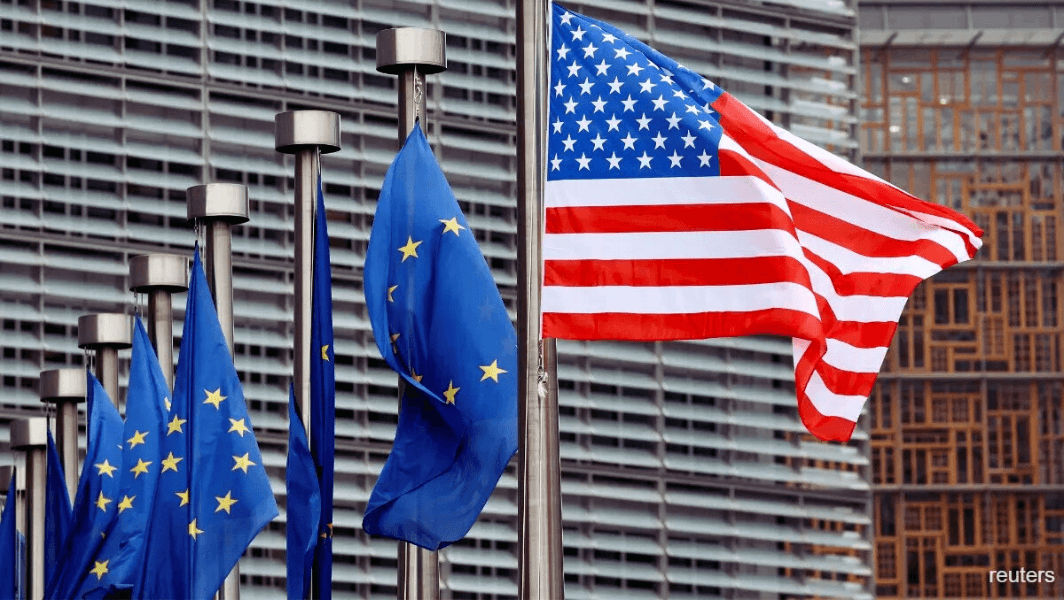
US Demands EU Antitrust Chief Clarify Big Tech Regulation Rules
Washington Calls for Greater Transparency Amid Transatlantic Tensions
In a bold move that underscores growing transatlantic tensions over tech regulation, US officials have demanded that the European Union’s antitrust chief provide a clearer explanation of the rules designed to reign in Big Tech. The request comes as policymakers in Washington express concerns over ambiguity in the EU’s approach to digital market oversight—a move they fear could have far-reaching implications for American tech giants operating overseas.
Background: The Evolution of Tech Regulation in Europe
Over the past several years, the European Union has emerged as a global leader in antitrust and regulatory actions aimed at curbing the dominance of major technology companies. With a series of high-profile cases and multibillion-euro fines levied against industry giants, the EU has positioned itself as a staunch advocate for consumer protection and fair competition in digital markets.
However, while the regulatory framework is robust, critics—particularly from the US—argue that the rules governing Big Tech remain murky. The lack of precise guidelines has led to uncertainty among companies and policymakers alike, prompting calls for a more transparent and predictable regulatory environment.
The US Perspective: Seeking Clarity on Uncertain Grounds
US officials contend that the current EU regulatory framework does not provide sufficient clarity on how enforcement will be carried out. According to sources in Washington, the ambiguity in the rules may create an uneven playing field for American companies, which are often seen as the primary targets of EU investigations. Key points raised by US lawmakers and industry leaders include:
-
Ambiguous Enforcement: Uncertainty over how and when penalties will be applied makes it difficult for companies to gauge compliance risks.
-
Impact on Innovation: Critics argue that vague regulations could stifle innovation by imposing overly stringent measures without clear standards.
-
Competitive Disadvantage: American tech giants may face a competitive disadvantage if forced to navigate a regulatory system that lacks consistency.
US officials have thus urged the EU antitrust chief to articulate the precise mechanisms and criteria that will govern future regulatory actions. This, they believe, would foster greater confidence among stakeholders and facilitate a more predictable business environment.
The EU’s Stance: Balancing Rigor and Flexibility
On the other side of the Atlantic, the EU maintains that its approach is designed to be both rigorous and adaptive. EU regulators argue that the fast-evolving digital landscape requires a flexible framework capable of addressing emerging challenges in real time.
The EU antitrust chief has acknowledged the complexity of regulating rapidly changing technology markets and emphasized that current guidelines are part of a broader strategy to ensure fair competition. However, the recent demand from US officials has intensified calls within the EU for further clarification. Critics within Europe warn that without clear parameters, enforcement actions could lead to legal uncertainty and unintended market distortions.
Implications for Big Tech and Global Markets
The growing demand for regulatory clarity is expected to have significant implications for Big Tech companies, which are already under intense scrutiny worldwide. Uncertainty over enforcement practices could lead to:
-
Strategic Shifts: Companies might alter their business models or operational strategies to mitigate perceived risks.
-
Increased Compliance Costs: Ambiguous rules often necessitate additional legal and administrative efforts to ensure compliance.
-
Market Realignments: A clearer regulatory framework could either bolster consumer trust in digital markets or, conversely, drive companies to seek less restrictive jurisdictions.
Furthermore, the outcome of this transatlantic debate may set a precedent for global digital regulation, influencing policy decisions in other regions grappling with the challenges posed by dominant tech firms.
Looking Ahead: The Path to Regulatory Consensus
As the US and EU navigate their differing regulatory philosophies, the call for greater transparency represents a critical juncture in the ongoing debate over digital market oversight. Stakeholders on both sides of the Atlantic agree on the need to protect consumers and foster fair competition; however, reconciling these goals with the dynamic nature of technology remains a formidable challenge.
The coming months will be crucial as negotiations and public discussions intensify, with many eyes watching to see whether the EU antitrust chief will address these concerns in a manner that reassures both regulators and industry leaders. Whether through formal policy revisions or enhanced communication, a clearer regulatory roadmap is essential for maintaining a balanced and competitive global tech landscape.
In summary, the US demand for a clearer articulation of the EU’s Big Tech rules underscores the broader struggle to define the future of digital market regulation. As debates continue, both American and European stakeholders are keenly aware that the resolution of these issues will not only shape transatlantic relations but also determine the competitive dynamics of the global tech industry.
For any enquiries or information, contact info@thelawreporters.com or call us on +971 52 644 3004. Follow The Law Reporters on WhatsApp Channels